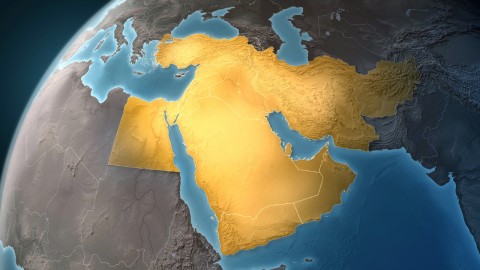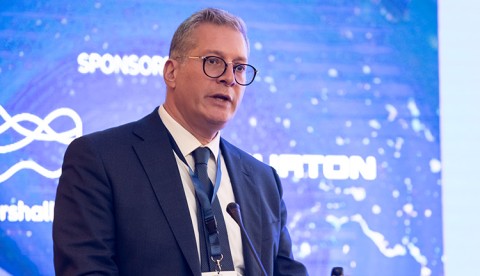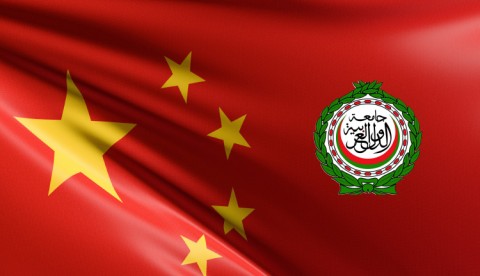Europe is bracing for the unknown in the coming winter. Regardless of the low-temperature forecasts, the Russian threats to halt energy supplies may let Europeans freeze.
Since the beginning of its “military operation” in Ukraine in February, Russia has tried to make the gas supply to Europe as unpredictable as possible to dent EU resolve on sanctions and their military and economic support to Ukraine.
At the end of July, Russia reduced gas flows to Europe via the Nord Stream 1 pipeline to 20% capacity. Further restrictions in supply are likely, creating uncertainty around the region’s outlook and resulting in energy shortages and high prices that are expected to cause an economic downturn in Europe this winter.
The most serious threat has recently come from Russian President Vladimir Putin, personally, as he told business leaders in Vladivostok on September 7 that Russia could yet decide to rip up existing supply contracts. Putin’s remarks came in response to EU proposals to implement price caps on Russian energy imports.
Putin’s threats left European leaders with no illusions about the Russian intention to weaponize energy supplies, especially at a time when Ukrainian troops are advancing on different fronts.
The European leaders are scrambling to formulate the right hedging plans, while traders and observers are putting their new outlooks for an energy market; where Europeans will seek an alternative to Russian energy and Russia will seek new clients for its oil and gas activities.
European Hedging Plans
High energy prices are already threatening to cause a recession this winter through record inflation, with consumers having less to spend as costs for food and fuel are rising. A complete cutoff of Russian supplies could deal a heavier blow to an already troubled economy.
Besides heating homes and generating electricity, gas is used to fuel a range of industries that most people never think much about — from forging steel for car manufactiring, making glass bottles, to pasteurizing milk.
Although the EU has already called upon its members to voluntarily reduce their gas consumption by 15% in the fall and winter, that might not be enough to face Putin’s threats as European countries used to get 40% of their total gas needs by pipeline from Russia.
Following Putin’s remarks, European Commission President Ursula von der Leyen described the situation facing Europe as extraordinary, accusing Russia of being an unreliable supplier that manipulates European energy markets.
She said the Commission would put forward immediate measures to help consumers, including a mandatory target for reducing electricity use at peak hours, a cap on revenues of companies producing electricity with low costs, and other plans to share the burden of energy price rises.
Several European governments have already announced measures to protect citizens from rising energy bills. In the meantime, Western nations are trying to put pressure on Russia’s energy revenues, which funds the war on Ukraine, by proposing price caps on Russian oil and gas.
Governments in Europe, reportedly, have earmarked nearly 500 billion euros in the last year to cushion citizens and companies from soaring gas and power prices.
Although many of these measures were designed to be temporary, many observers see the state intervention as becoming structural.
Since the halt of Nord stream supplies in July, several European officials have expressed confidence that they can endure winter with limited Russian energy.
As Russian gas flows were running at severely reduced levels, Germany was pressing to secure liquefied natural gas contracts with Gulf producers and other European states outlined measures to conserve energy. Berlin is also ramping up the number of LNG terminals it is building. Spain, France, and other European countries also outlined contingency planning to try to avoid power cuts.
The increased LNG imports and rationing of gas consumption have helped European gas storage to reach 85.6% full. However, many observers expect that some countries to be unable to meet their gas needs this winter, while other countries will be forced to implement industrial rationing.
Many observers believe that it will not be a problem for one winter. Efforts to replace Russian gas with other pipelines and LNG have yielded some results but cannot go much further in the short term given the limited availability of global LNG supplies and regional regasification terminals.
Transitioning away from Russia as an energy source and towards LNG and renewables will take time, while a revival of coal-fired power in some countries will mean a temporary setback to emissions reduction. Hence, the winter of 2023/24 is likely to be challenging too.
Gas Weapons will backfire
Russians think of oil and gas as a decisive weapon in the Russia-Ukraine conflict during winter. However, the weapon can backfire.
In case of cutting energy supplies to Europe, Russia will be deprived of important financial resources and while finding alternative energy resources is challenging for Europe, also finding new markets for their oil and gas will be challenging for Russia.
Commenting on the actions of “unfriendly states,” the Russian President insisted on the need to draw up plans with oil and gas companies for expanding the export infrastructure to countries in Africa, Latin America, and the Asia-Pacific region.
After the beginning of the conflict in Ukraine, Russia had fewer buyers for its Urals crude oil, with some foreign governments and companies deciding to shun its energy exports, and its price started to fall.
It was a great chance for Asian buyers such as China and India to increase their exports from Russia with big discounts.
Russian Urals oil has always been a grade for Europe. Taking it to new markets away from Europe will depend mainly on ships which will add costs of transport, insurance, and timing. It will also depend on the well of these countries to go against sanctions imposed on Russia by the West.
Many experts see that re-routing oil from Europe will be a tough task, as Russian oil ports have limited export capacity. And even these favorable terms Moscow is offering will not convince India and China to buy much more Russian crude as they have several long-term contracts with other producers.
Re-routing gas exports represents a bigger challenge than oil as it heavily depends on pipelines. Still, developing new pipelines that can take Russian gas to new destinations needs a long time and has many complications. Hence, the coming winter may be also cruel for Russia too.








